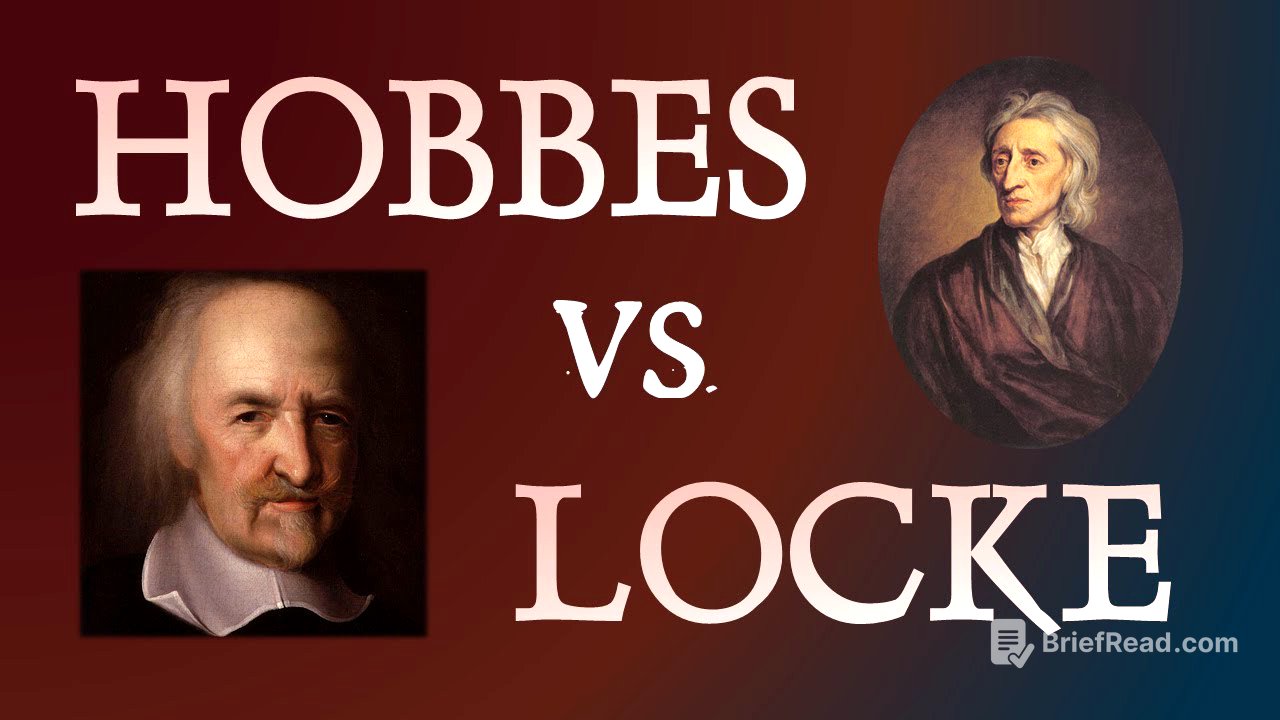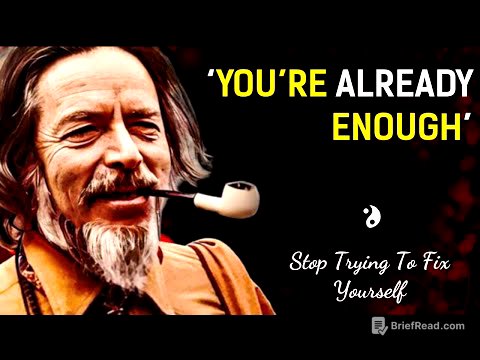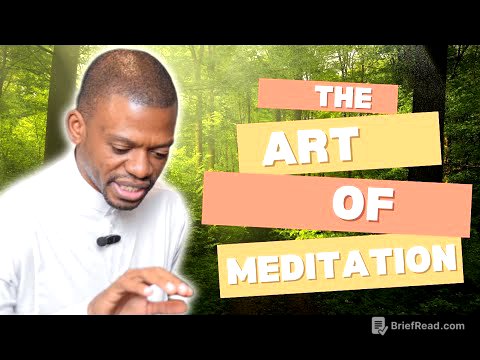TLDR;
This video provides a comparison of Thomas Hobbes and John Locke, two influential early modern European philosophers. It explores their differing views on the social contract, the origin of government, and the extent of state authority over individuals. Hobbes advocated for philosophical absolutism, while Locke championed constitutional government and limited government. The video also touches on their contrasting perspectives on human nature and the right to revolution.
- Hobbes defends absolutism, believing it's necessary to prevent self-destruction.
- Locke advocates for constitutionalism, emphasising natural rights and the right to revolution.
- Both philosophers offer versions of the social contract, agreeing on the origin of government but disagreeing on the authority it should wield.
Thomas Hobbes (Leviathan) [2:11]
Thomas Hobbes, in his book Leviathan (1651), defends philosophical absolutism, arguing that absolute government is best not because it's divinely mandated, but because it's the most effective form of governance. Hobbes uses the Leviathan, a formidable sea monster from the Old Testament, as a metaphor for the kind of ruler needed to prevent people from destroying each other. According to Hobbes, life before government was a "state of nature," a "war of all against all" (Bellum omnium contra omnes), where life was "solitary, poor, nasty, brutish, and short." He believed a strong, unchallenged ruler is necessary to maintain order, reflecting a pessimistic view of human nature, similar to John Calvin's concept of total depravity. Hobbes wrote against the backdrop of the English Civil War, which convinced him that absolute authority was essential for societal survival.
John Locke (Two Treatises of Government) [9:33]
John Locke, in his Two Treatises of Government (1689), advocates for philosophical constitutionalism, which is the limitation of government by law. Locke argues for natural rights—life, liberty, and property—given by God to Adam and thus to all humans. He posits that people enter into a social contract to preserve these rights, and the government's role is to protect them. Locke asserts that if a government fails to protect these natural rights, citizens have a right to revolution, a concept that heavily influenced Thomas Jefferson in the Declaration of Independence. Locke wrote against the backdrop of the Glorious Revolution, which further solidified his belief in limited government and the protection of individual liberties.
Compare/Contrast with Graphic Organizer [13:00]
Hobbes and Locke both believed that the original state of mankind was a state of nature (or war, in Hobbes' view) and that government is established by social contract, not divine right. However, they diverge on the purpose of government: Hobbes saw it as protecting people from themselves, while Locke saw it as protecting natural rights. Hobbes argued that people give up sovereignty to an absolute ruler and cannot reclaim it, whereas Locke maintained that people retain sovereignty and can overthrow a government that fails to protect their rights. Consequently, Hobbes was an absolutist who denied the right to revolution, while Locke was a constitutionalist who affirmed it.









